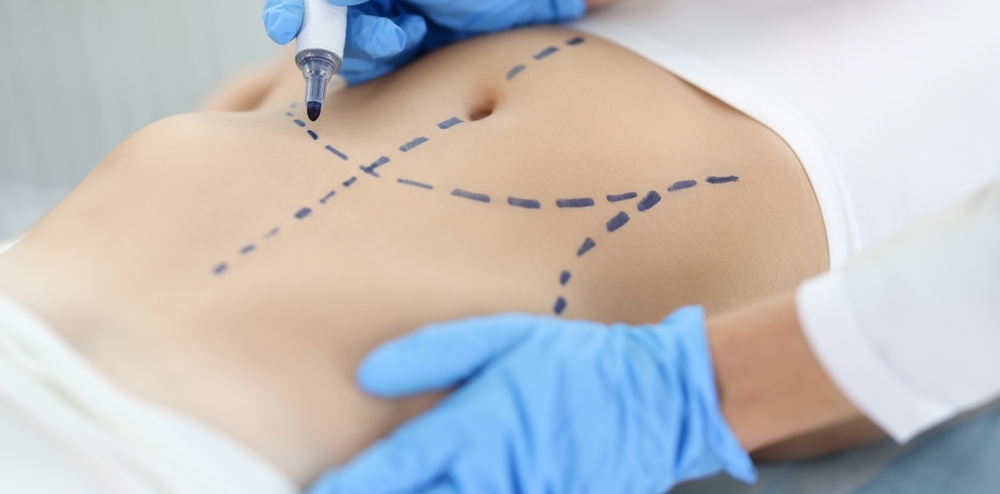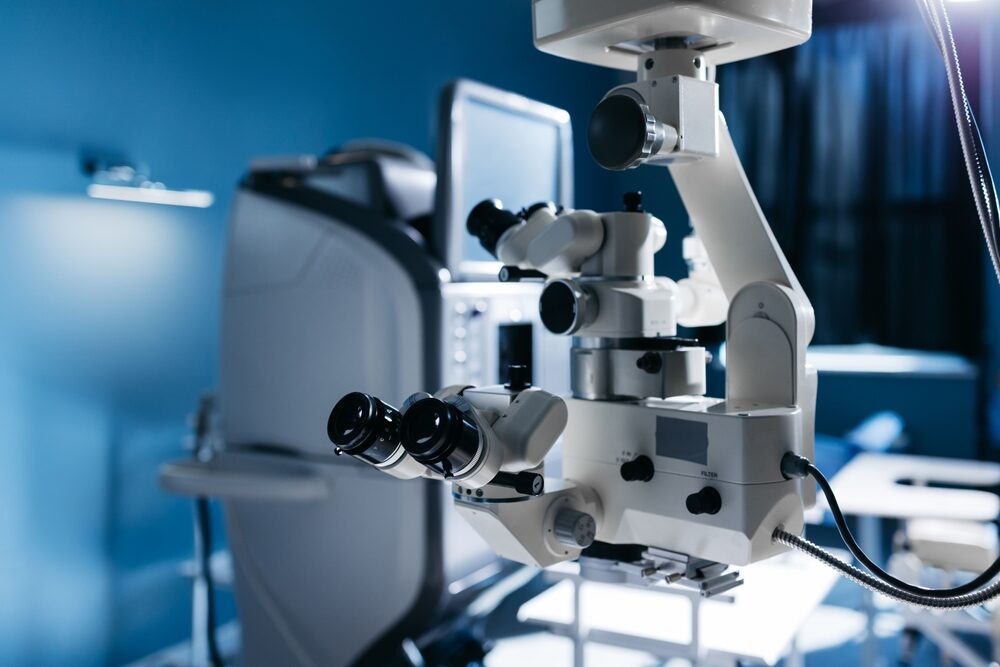
☝️ The most important facts in brief
- Surgery is the medical speciality that deals with the surgical treatment of diseases and injuries.
- A surgeon performs operations to repair organs, correct deformities or remove damaged tissue.
- During your further training as a specialist in surgery, you can focus on different specialisations and become a specialist in certain types of surgery.
- To become a surgeon, you must first study human medicine for 6 years and then complete a further 6 years of training to become a specialist surgeon.
📖 Table of contents
Surgery is a central discipline of medicine. Surgeons treat illnesses and injuries through surgical procedures, among other things. Thanks to surgery, it is possible to save organs, remove tumours and treat injuries in emergencies and during planned operations. Find out more about the profession and training of surgeons.
Are you interested in studying medicine?
We will be happy to advise you free of charge about your options for studying medicine, including advice on studying medicine in another EU country, which is fully recognised in Germany.
What exactly is surgery?
The term "surgery" comes from the Greek word "chirurgia", which means "work/craft". Surgeons treat illnesses and injuries through surgical procedures. For example, they repair organs, remove tumours and correct deformities.
Specialities such as visceral surgery and orthopaedics and trauma surgery cover various areas for which specific experts are required. Surgeons can work in clinics and specialised centres, among other places. You can also treat patients as a registered surgeon with your own practice.
What does a surgeon do?
A surgeon operates on patients to cure illnesses or treat injuries. But that is not the full definition of the profession. Surgeons also carry out diagnostics, plan treatments, treat wounds and monitor aftercare. Surgeons can also treat some complaints conservatively without surgery.
The different surgical specialities
Surgery is an extremely diverse medical speciality and is itself subdivided into different areas. During your training as a specialist in surgery, you can specialise in your own field within surgery.
Visceral surgery
By definition, the speciality of visceral surgery deals with the treatment of diseases in the abdominal cavity. Surgeons operate on organs such as the stomach, intestines and liver in this area. Hernia surgery and intestinal operations are common procedures. Visceral surgery requires precise work and extensive knowledge of this anatomical area.
Thoracic surgery
In this special sub-category of surgery, specialists focus on the organs in the chest. As a surgeon, you will perform lung and bypass operations, for example. In-depth knowledge of the airways and the anatomy of the heart is essential when working as a thoracic surgeon.
Cardiac surgery
Cardiac surgeons operate on the heart and neighbouring vessels. Just like thoracic surgeons, they often perform bypass operations, but heart valve repairs and more complex heart surgery are also part of their profession. Heart transplants also require a suitably specialised surgeon - in addition to specialised transplant doctors.
Neurosurgery
In addition to comprehensive expertise, you need the Neurosurgeon fine motor skills at the highest level. After all, you work on the peripheral and central nervous system of your patients. This also includes operations on the brain, where a steady hand is of course indispensable. For example, you will remove tumours, treat herniated discs or plan treatment after complex nerve damage.
Vascular surgery
Vascular surgeons treat diseases of the vascular system. They specialise in bypass operations and the treatment of so-called aneurysms. Vascular surgeons usually work in a clinic, where they work in an interdisciplinary team to restore and maintain the vessels.
Paediatric surgery
Performing surgery on children places special demands on the specialist. Vessels and all other anatomical structures are not only smaller, but the organism often reacts very differently to certain medications and stresses. In Germany, more complex operations on children are often carried out in specialist paediatric clinics and centres.
Trauma surgery
Trauma surgeons treat acute injuries such as broken bones and soft tissue injuries. They are often the first point of contact when life or death is at stake in the emergency department. The most common tasks of these doctors include fixing fractures and reconstructing injured tissue. Trauma surgeons in Germany often work in clinics and trauma centres and must be able to set priorities and make quick decisions even under stress.
Plastic surgery
Plastic and aesthetic surgery includes deformity correction, scar correction after accidents and also so-called cosmetic surgery. The changes in shape are intended to improve the patient's well-being and quality of life.
General surgery
If you are looking for particularly versatile training and do not want to specialise too much in individual areas, general surgery may be the right field for you. It covers a wide range of clinical pictures and associated procedures. General surgeons often perform operations in the abdomen, such as appendectomies or gallbladder removal. They are multi-skilled specialists who fulfil an important support and care function in our healthcare system.
Operating is not your only job as a surgeon
A surgeon operates a lot, but that is only part of his work. Diagnosis, treatment planning, aftercare and patient counselling are also important tasks. Surgeons also carry out conservative therapies that do not require surgery.
The role of diagnostics in surgery
As a specialist in surgery, diagnostics are an important part of your job. Laboratory tests and, above all, imaging procedures help you to find the right diagnosis. This forms the basis for any successful treatment.
Depending on the nature of the problem, a surgeon has more or less time to fully diagnose the existing diseases or injury patterns. If the problem is a life-threatening emergency, it must be dealt with quickly and the exact diagnosis can often only be made during the operation. Planned operations, on the other hand, are only carried out after a full diagnosis has been made and it has been established exactly what is wrong with the person concerned.

Not every disease requires surgery - conservative wound care
Surgery is not always necessary. Many diseases can also be treated conservatively. Surgeons use certain wound care techniques and physical measures for this purpose. For example, a shoulder fracture only needs to be operated on if parts of the bone are displaced and need to be fixed in place with screws, for example. If this is not the case, the doctor can treat it conservatively.
Training as a surgeon - requirements and procedures
Before you can become a surgeon in Germany, you must first complete your degree in human medicine and pass the final examination. You can then work as a doctor in hospitals and begin your training as a specialist in surgery at the same time. You can only work as a surgeon once this has also been completed.
Medical studies
The first part of your path to a career in surgery begins with studying human medicine. In the 4-semester pre-clinical part, this mainly covers the basics. This includes the following subjects:
- Anatomy
- Biology
- Physiology
- Physics
- Chemistry
- Biochemistry
- Psychology
This is followed by the so-called "clinic", where you will spend 6 semesters dealing with a wide range of medical specialisms. The list of subjects taught in this section includes, for example
- Pathology
- Internal medicine
- Dermatology
- Gynaecology
- Forensic medicine
- Paediatrics
- Radiology
- General medicine
- Ophthalmology
Surgery is also covered here. In contrast to later training as a surgeon, however, the content remains comparatively general. You will not be operating yourself during your studies.
The last part is the so-called practical year (PJ). During this time, you will gain experience of medical practice. You will spend 16 weeks of your practical year in surgery.
Further training as a specialist in surgery
After you have completed your studies and are allowed to work independently as a doctor in clinics, it is time for specialist training. This lasts 6 years, just like the degree programme. While you don't earn anything as a student, you are already working as a doctor during your further training as a surgical specialist. The training is completed alongside your job. The list of subjects taught includes, among others
- Basics of surgery
- Emergency medicine and first aid
- Wound care and healing
- Minimally invasive surgery (laparoscopy)
- Anaesthesia and post-operative care
- Oncological surgery
- Professional ethics and legal framework
Career opportunities and salary
As a surgeon, you have excellent career opportunities in Germany. There is a great demand for specialised medical specialists, and information on current developments shows that this is likely to increase even further. The work of a specialist surgeon cannot simply be done by any other doctor, which is also reflected in a correspondingly higher salary.
Depending on the nature of your position, you can expect to earn around €6,000 per month initially when working at a clinic or surgical centre. Later, when you become a senior physician or head physician, this salary can increase significantly.
Another option is to set up your own practice and carry out operations as an attending physician at a private clinic, for example. Although this requires appropriate planning and is associated with costs and risks, the income can still be significantly higher.
Examples of typical diseases and operations in surgery
Some people refer to surgeons as "craftsmen" for the human body. However, this does not quite do justice to the profession, because in addition to the sometimes quite manual work, a great deal of knowledge about the speciality in question is required, and quick medical decisions are sometimes necessary.
Finally, we would like to introduce you to some of the numerous examples of a procedure that you will encounter in surgery.
Intestinal surgery
Intestinal surgery is one of the most common procedures in visceral surgery. In this way, the surgeon treats diseases such as bowel cancer or inflammatory bowel diseases. Not only is the actual operation important for successful treatment, but also good post-operative care during the recovery phase.
Operations on the spine
Surgery on the spine can involve, for example, the treatment of herniated discs or reconstructive surgery following vertebral fractures. Unfortunately, tumour metastases are also frequently found in the bones of the spine. This type of surgery requires a particularly steady hand, as there are many nerves and other structures in the vicinity of the surgical site that should not be damaged.
Inguinal and incisional hernias
Inguinal and incisional hernias are often operated on by a surgeon specialising in general surgery. In most cases, such operations can now be performed using minimally invasive techniques. In most cases, a type of "support mesh" is used to cover the hernia and promote healing in the correct position.
Removal of the gallbladder
This operation is often performed using a minimally invasive technique. The surgeon removes the gallbladder laparoscopically to avoid pain and complications. This procedure is widely used and requires appropriate knowledge of visceral surgery. After the operation, patients can usually resume their daily routine quickly.
Soft tissue tumours
The surgeon removes benign and malignant tumours from muscle, fat or connective tissue. Precise incisions are important here in order to minimise loss of function and changes in shape. A so-called frozen section diagnosis is often carried out by the pathology department during the operation. This allows the surgeon to find out whether he has cut away all areas affected by tumour tissue or whether he still needs to rework them.
Bone fractures and other reconstructive operations following an injury
Whether hand, leg or even skull: in some cases, surgical intervention is necessary after a bone fracture so that the bone can heal in the correct position. The treatment usually consists of fixing the bone and then immobilising it for the healing phase.
Free information material
Studying medicine abroad 🎉
Order your info pack now, find out more about the Studying medicine abroad and get started as a medical student!





